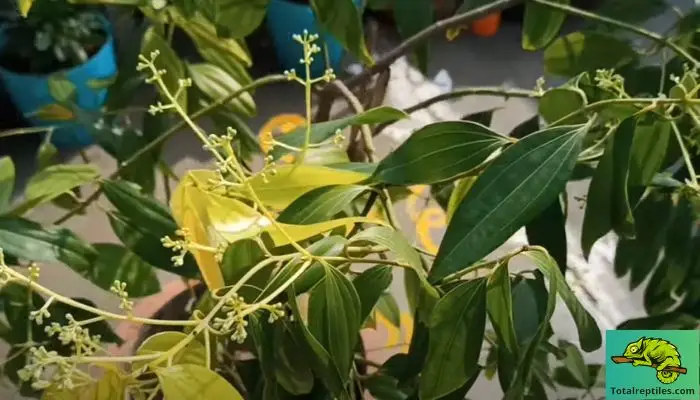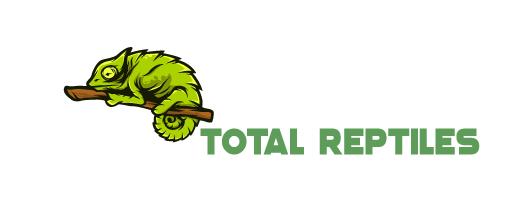Unfortunately Not. Bearded dragons should not eat bay leaves. Bay leaves are toxic to bearded dragons and cannot be digested by them. They may cause pain and discomfort to bearded dragons if swallowed. Bay leaves are mainly used for flavoring in cooking and are removed before serving. Avoid feeding bearded dragons toxic or not digestible foods to avoid health risks.
Can bearded dragons eat bay leaves? This is a common question among reptile owners who want to ensure they provide their pets with a healthy and balanced diet. But, not all plants are suitable for bearded dragons to eat.
Some may be indigestible or harmful to their health. One such plant is the bay leaf, often used for cooking flavoring. This article will explain why bearded dragons should not eat bay leaves and their safe alternatives.

An Overview of Bay Leaves
Bay leaves come from the bay laurel tree, an evergreen tree native to the Mediterranean region. The leaves have an herbal flavor that pairs well with hearty dishes. When cooking, the leaves are typically removed before serving since they are tough and not meant to be eaten.
The flavor and fragrance of bay leaves come from essential oils such as cineole, eugenol, and pinene. These compounds give the leaves their trademark spicy and menthol-like aroma. The leaves also contain tannins and a bitter taste.
Why Bearded Dragons Should Not Eat Bay Leaves?
So, should you add bay leaves to your bearded dragon’s salad? Unfortunately, bay leaves are not a good food choice for bearded dragons. Here are some of the main reasons why bay leaves are not recommended:

- Choking hazard – Bay leaves are rigid, dry, and not meant to be consumed. A bearded dragon could easily choke on a bay leaf if it tried to swallow it.
- Gastrointestinal irritation – The tannins and essential oils in bay leaves may irritate the sensitive digestive system of a bearded dragon. This could lead to upset stomach, abdominal pain, or diarrhea.
- Nutritional profile – Bay leaves contain small amounts of nutrients like vitamin A, calcium, and iron. They are not a significant source of the vitamins, minerals, and nutrients bearded dragons need. They lack protein, healthy fats, and complex carbohydrates.
- Toxicity – Bay leaves contain oils like eugenol that could be toxic to reptiles if consumed excessively. It’s best not to take any chances.
Bay leaves offer bearded dragons no actual health or nutritional benefits. And they come with multiple risks that make them an unsafe choice.
Best Foods and Diet for Bearded Dragons
Instead of bay leaves, the best-bearded dragon diet consists mainly of:
- Leafy greens – Nutrient-rich greens like collard greens, mustard greens, turnip greens, dandelion, and endives are excellent sources of daily foods. They provide antioxidants and calcium. Squash, carrots, sweet potatoes, and zucchini offer key vitamins and minerals.
- Fruit – Fruits like blueberries, cantaloupe, and strawberries can be given 2-3 times a week. They have beneficial nutrients but are high in sugar.
- Insects – crickets, mealworms, silkworms, roaches, and grasshoppers, are essential for protein. Babies need 80% insects, decreasing to 30-50% for adults.
- Calcium – Dust insects with calcium powder to help meet calcium needs for strong bones and teeth. Multivitamins can also be used to fill any nutritional gaps.
- Hydration – Always provide fresh, clean drinking water in a bowl that is washed and refilled daily. Proper hydration is vital!
A balanced diet tailored to a bearded dragon’s age and activity level is key to keeping them healthy and thriving. While human seasonings like bay leaves seem interesting, sticking with known nutritious bearded dragon foods is safest. Monitoring their appetite, energy level, and growth will help ensure they get all the necessary nutrients.
FAQ
1. What herbs are safe for bearded dragons?
Bearded dragons can eat a variety of herbs. Basil, Parsley, Mint, Cilantro, and Rosemary are safe to eat. It is also recommended to choose fresh herbs instead of dried ones because dried herbs are more concentrated and can upset a bearded dragon’s stomach.
2. What leaves are toxic to bearded dragons?
Some toxic leaves to bearded dragons include lilies, marigolds, Wild daffodils, tulips, hyacinths, specific varieties of ivy, bay leaves, garlic, dill leaves, onion, and chives.
Conclusion
Bay leaves are a staple in many cuisines but have no place in a bearded dragon’s diet. The aromatic leaves can pose multiple risks, including choking hazards, gastrointestinal distress, toxicity, and nutritional deficiencies. While tiny amounts may not cause immediate harm, bay leaves offer no health benefits.
For the safety of your bearded dragon, it’s recommended never intentionally to feed them any amount of bay leaves.
Fortifying their enclosure and diet with more appropriate bearded dragon edibles is the best way to keep them healthy and happy. With proper nutrition and care, bearded dragons can thrive without any bay leaves or other seasonings in their meals.

